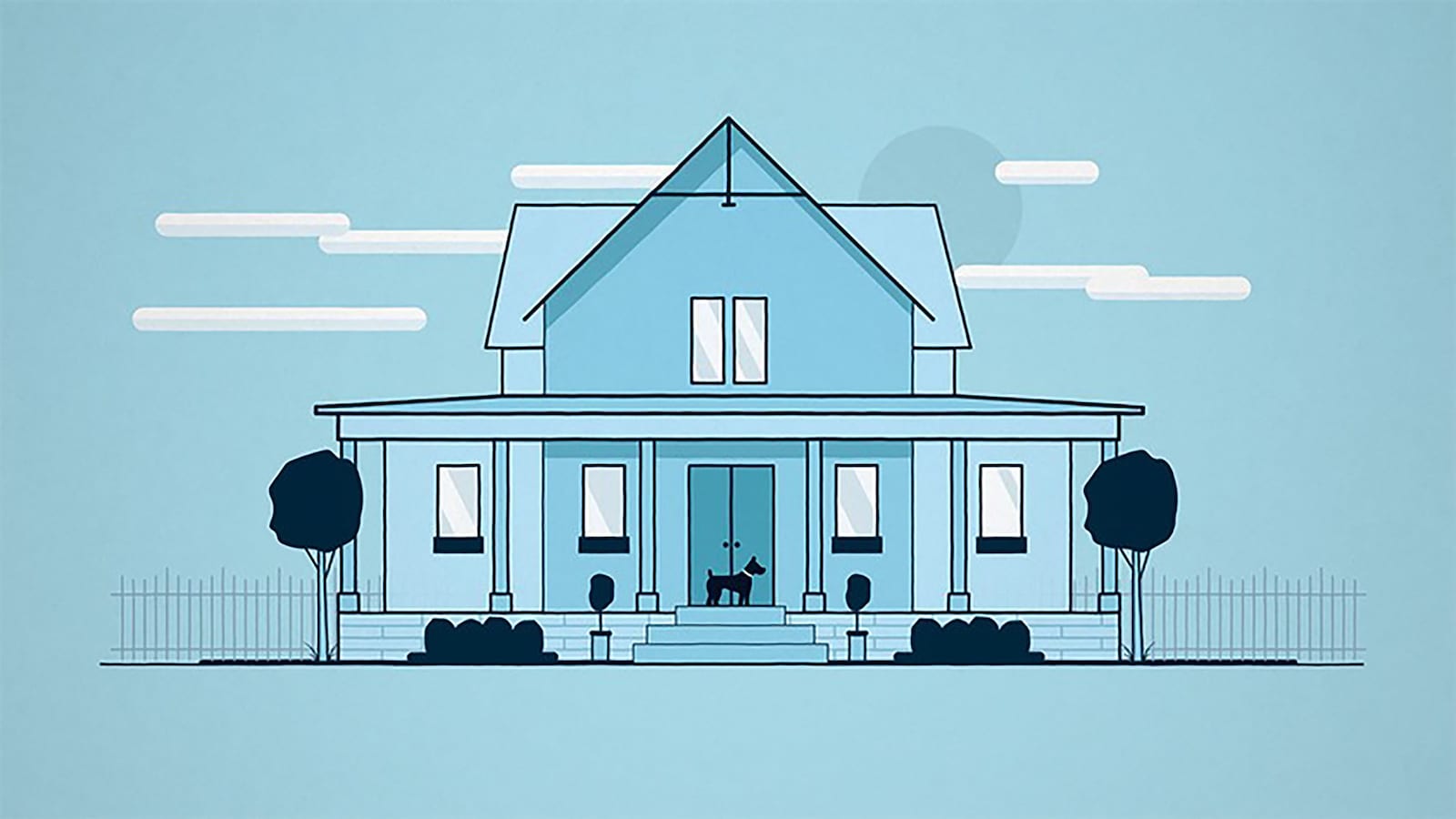What are closing costs and how much are they?
How Closing costs & fees figure into your buying journey.
Whether you apply for a new home loan or refinance an existing mortgage, you can expect to incur at least a few fees. Knowing what closing costs cover and when you must pay them may help you prepare when finalizing your mortgage.
Your closing costs depend on several factors, including your total loan amount, the type of home loan you get and the location of your home. Let’s explore the closing costs you should expect to pay and learn how you could potentially reduce your expenses.
What are closing costs?
Closing costs are supplemental charges buyers need to plan for, in addition to saving for their down payment. These charges cover the various fees associated with closing on your home. While every transaction’s closing costs will be slightly different, you can generally expect them to include things like mortgage application costs, recording fee and charges from your attorney.
How much are closing costs?
Homebuyers can generally expect closing costs to range from 2-5% of the loan amount. This means your total closing costs will vary depending on the loan size. For example, if you’re taking out a mortgage of $300,000, you may likely spend another $6,000-18,000 on closing costs.
Who pays closing costs?
As the borrower, you usually pay the closing costs. In some cases, however, you may be able to ask the seller to cover some of the costs. For example, if there's not a lot of competition in the housing market in the area you're looking to move to, the seller may agree to pay some of your closing costs to encourage you to move forward with the sale.
Typical buyers' closing costs
- Application fee: Some lenders charge a fee for the initial cost of processing your loan application. You’ll usually have to pay this fee whether or not you’re approved for a loan.
- Credit report fee: During loan approval, your lender will check your credit. This fee covers the cost of pulling your credit report.
- Loan origination fee: This fee covers the costs to process your loan.
- Attorney fees: These are the fees your attorney charges in exchange for helping you through the homebuying process. Your lender can clarify if attorney fees will factor into your closing costs. These may include state-specific fees.
- Appraisal fee: If you’re getting a mortgage, your lender will likely require an appraisal to determine the home's fair market value. This fee will be included in your closing costs.
- PMI premium: If you plan on applying for a conventional mortgage and putting less than 20% down on the home, you’ll likely need private mortgage insurance (PMI) for a conventional loan, an insurance policy that protects the lender if you default on the loan.
- Property taxes: At closing, the buyer reimburses the seller for property taxes paid between closing and when the tax period ends.
- Title search and insurance fees: A title search verifies there are no other ownership claims or liens on the property.
- Recording fees: Once a new deed is processed, it’s recorded, usually at the county clerk’s office. These fees cover those costs.
Typical seller closing costs
- Commission: A seller’s largest slice of closing costs is paying the commission fees for both real estate agents. The percentage depends on where you live and who you’re working with.
- Transfer taxes: Most states and municipalities impose taxes for transferring property ownership from one party to another.
- Attorney fees: The seller will also be responsible for paying their attorney fees, if an attorney is required.
Closing costs for conventional loans
If you take out a conventional loan, your closing costs will typically include some of the same fees for the buyer and seller, as well as:
- Broker fee
- Discount points (if applicable)
- Rate lock fee
- Recording fee
- Survey fee (may be required if issues are found during the title search or property appraisal)
- Underwriting fee
Closing costs for U.S. Federal Housing Administration (FHA) loans
When you get an FHA loan, you may pay most of the applicable fees from the list above, based on the requirements set by your lender or service provider. In addition, you will be required to pay an Upfront Mortgage Insurance Fee, although you can choose to pay it in full or finance it in the total mortgage amount.
Closing costs for U.S. Department of Veterans Affairs (VA) loans
Along with most applicable conventional loan fees, VA loans require a funding fee. According to the U.S. Department of Veterans Affairs, this one-time payment ranges from 1.25% to 3.3%Opens overlay of the mortgage amount. The percentage depends on your down payment amount and whether you're a repeat VA loan customer. VA borrowers with higher down payments generally have the lowest funding fees.
A few examples of those who are typically exempt from paying the VA funding fee include veterans who receive compensation for service-connected disabilities and veterans who receive disability compensation but don’t receive military retirement pay.
When do you have to pay closing costs?
No matter who covers the closing costs, most are typically paid when you close on your loan. Some fees, such as the appraisal or application fee, may be charged upfront. If you're responsible for the closing costs, you’ll need to be ready to pay these fees and make a down payment.
In some cases, you may be able to roll some or all of your closing costs into a refinance loan so you can pay them off over time. Conventional loans and some government-backed loans allow you to wrap some of the closing costs into a refinance. Be aware that while you won't have to pay a large lump sum at closing, your mortgage amount and monthly payment will be higher because closing costs are rolled into your new loan.
How to reduce closing costs
Before you finalize your mortgage, you may be able to lower your closing costs. Be sure to ask your lender how any decision(s) you make would impact your loan amount and monthly payments. Some of the most common ways to lower your closing costs include:
- Explore other loan types: If your closing costs seem too high, ask your lender about other loan options that may be more affordable. Request a breakdown of your upfront expenses and your total costs over time, and ask your lender if any fees are negotiable.
- Add closing costs to the loan: To lower your upfront costs, consider rolling some of them into the loan so you can pay them off gradually. Some lenders offer an option that allows you to pay a higher interest to fund some of your closing costs.
- Consider lower- or zero-point options: Think about buying fewer mortgage discount points and increasing your interest rate slightly. Ask your lender for a cost breakdown, so you can compare how much you'd save upfront to how much you'd pay over time.
- Ask the seller to cover the costs: Consider asking the seller to pay part of the closing costs, especially if the seller hasn't received competing bids. When a property has only one potential buyer, the seller has limited options and may be more motivated to cover closing costs.
- Request a no-closing-cost mortgage: Some lenders offer home loans with no upfront costs. Inquire with your lender to see if this is an option they offer.
- Shop around: Search and compare to ensure you’re getting the best deals. Be aware that some closing costs, like property tax amounts, are fixed and can’t be negotiated. For others, like attorney fees, shopping around for a better price may be possible.
If you notice substantial differences between the closing costs listed on the loan estimate and the closing disclosure, ask your lender for more information. Your diligence could help you identify unexpected expenses or excessive fees that could affect your ability to pay your closing costs.
In summary
Home loans are likely to have at least some closing costs. You’ll also want to consider bringing additional funds to closing to cover costs such as homeowners insurance, property taxes and mortgage insurance. You may have to pay mortgage insurance depending on your loan type and how much you put down. Take time to understand which costs you can negotiate and when to ask the seller or lender to pay them. Speak to a Home Lending Advisor to learn more about closing costs.
Closing costs FAQs
1. Can you roll closing costs into your mortgage?
Yes, you can roll closing costs into a refinance mortgage. Just keep in mind, this means you’ll be paying interest on the closing costs, too.
2. Can I pay closing costs with a credit card?
Most lenders and title companies don’t accept credit cards for your closing cost payments, but you may be able to use one to pay certain fees leading up to closing. Speak with your lender to learn more about your options.
3. How do you pay closing costs?
You can pay closing costs in several ways, including with the funds in your bank account or by rolling them into your mortgage.
4. What is the formula for calculating closing costs?
Closing costs typically range from 2–5% of your loan amount, meaning the costs will vary depending on the loan size. If you’re searching for a formula to calculate closing costs, you’ll want to consider factors such as the property’s zip code, the purchase price and your down payment amount. You can then use our mortgage calculator estimate closing costs, among other fees.



